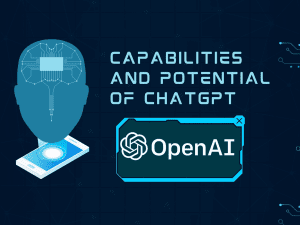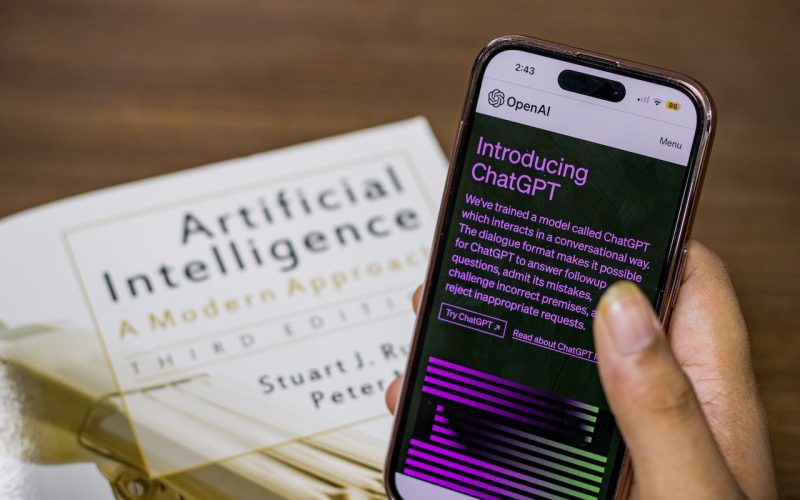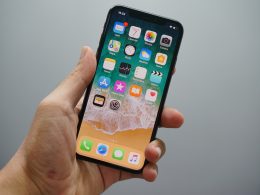Breaking Down Sam Altman’s OpenAI Farewell | Tech News
Sam Altman, the CEO of OpenAI, has been fired by the board of directors. What does this mean for the future of ChatGPT and artificial intelligence?
Introduction: Who is Sam Altman and why is he leaving OpenAI?
Sam Altman is the founder and CEO of OpenAI, the organization behind the popular chatbot ChatGPT. He is also a former president of Y Combinator, a startup accelerator that has funded and mentored some of the most successful tech companies in the world, such as Airbnb, Dropbox, Stripe, and SpaceX. Altman has been involved in various tech projects and initiatives, such as Neuralink, a brain-computer interface company co-founded by Elon Musk, and Worldcoin, a cryptocurrency project that aims to create a global digital identity system.
OpenAI is a research organization that was founded in 2015 by a group of prominent tech entrepreneurs and scientists, such as Elon Musk, Peter Thiel, Reid Hoffman, and Ilya Sutskever. Its mission is to ensure that artificial intelligence (AI) can be deployed safely and widely, and that its economic benefits are widely distributed. Its vision is to create artificial general intelligence (AGI), which is AI that can outperform humans at any task.
However, on November 15, 2023, OpenAI announced that it had fired Altman as its CEO, effective immediately. The reason for his departure was that the board of directors found him to be “not consistently candid” in his communications and lost confidence in his leadership. The board also stated that it had conducted an internal investigation and a review process before making its decision. The board appointed Mira Murati, the chief technology officer of OpenAI, as the interim CEO until a permanent replacement is found.
What does this mean for the future of OpenAI, ChatGPT, and the field of artificial intelligence? In this article, we will break down the implications of Altman’s exit for the organization, the product, and the industry.

ChatGPT: The Viral Chatbot That Made OpenAI Famous
ChatGPT is a generative AI tool that can create texts and images in response to user prompts. It is based on a deep learning model called GPT-3, which was developed by OpenAI and is one of the largest and most powerful language models in the world. ChatGPT can generate anything from website designs, emails, exams, essays, stories, poems, songs, jokes, memes, and more. It can also converse with users on various topics, such as sports, politics, entertainment, and more.
ChatGPT has been used by developers, businesses, and individuals for various purposes, such as creating websites, emails, exams, and more. For example, [WebGPT] is a tool that allows users to create websites by describing them in natural language. [EmailGPT] is a tool that helps users write professional and personalized emails by providing suggestions and templates. [ExamGPT] is a tool that generates multiple-choice questions and answers based on a given topic. ChatGPT has also been used for entertainment and education, such as creating stories, poems, songs, jokes, memes, and more. For example, [StoryGPT] is a tool that lets users write and read stories with ChatGPT as a co-author. [PoemGPT] is a tool that generates poems based on a given theme or style. [SongGPT] is a tool that creates lyrics and melodies based on a given genre or mood. [JokeGPT] is a tool that makes jokes based on a given topic or keyword. [MemeGPT] is a tool that generates memes based on a given image or caption.
However, ChatGPT also poses some challenges and risks, such as ethical, social, and legal issues. For example, ChatGPT can generate texts and images that are offensive, misleading, or harmful, such as hate speech, fake news, or phishing. ChatGPT can also infringe on the intellectual property rights, privacy rights, or personal data of others, such as copying, plagiarizing, or leaking information. ChatGPT can also be used for malicious or illegal purposes, such as hacking, spamming, or scamming. Therefore, ChatGPT requires careful and responsible use, as well as proper regulation and oversight.
ChatGPT has been very popular and successful, attracting millions of users and developers, and generating billions of dollars in revenue. According to Altman’s presentation at the OpenAI developer conference in October 2023, ChatGPT had over 100 million active users, 2 million developers, and 90% of Fortune 500 companies as customers. ChatGPT also generated over $1 billion in revenue in a year, making it one of the most profitable AI products in history. ChatGPT also established partnerships and collaborations with some of the biggest tech companies in the world, such as Microsoft, Google, and others. Microsoft invested $1 billion in OpenAI in 2019, and became the exclusive cloud provider and licensee of ChatGPT. Google integrated ChatGPT into its products and services, such as Gmail, Google Docs, Google Assistant, and Google Photos.
The Board’s Decision: What Went Wrong and How It Was Handled
The board’s decision to fire Altman as the CEO of OpenAI was a surprising and controversial move, as Altman was the founder and leader of the organization, and had a significant influence and impact on the development and direction of ChatGPT and artificial intelligence. What went wrong and how was it handled?
The board’s decision was based on the finding that Altman was “not consistently candid” in his communications, and that the board had lost confidence in his leadership. The board did not provide any specific examples or details of Altman’s alleged misconduct, but stated that it had conducted an internal investigation and a review process before making its decision. The board also claimed that it had acted in the best interest of OpenAI and its mission, and that it had fulfilled its fiduciary and legal responsibilities.
However, the board’s decision and process were not transparent or convincing, and raised many questions and doubts. For example, what were the exact reasons and factors that led to the board’s loss of confidence in Altman? Was it his communication style, his vision, his management, his transparency, his accountability, or something else? What was the evidence and argument that the board used to justify its decision? How did the board conduct the internal investigation and the review process? Who was involved and what was their role and influence? How did the board handle the situation and communicate it to the public and the employees?
The board’s announcement was also poorly timed and poorly worded, and had a negative impact on the organization and the product. The announcement was made on a Monday morning, without any prior notice or warning, and without any explanation or apology. The announcement was also very brief and vague, and did not address the implications or consequences of the decision. The announcement also did not acknowledge or appreciate Altman’s contributions or achievements, and did not express any gratitude or regret. The announcement also did not provide any information or guidance on the future of OpenAI and ChatGPT, and did not reassure or inspire the users, developers, customers, partners, or employees.
The announcement also sparked a lot of reactions and responses from Altman, other OpenAI leaders, and the tech community. Altman responded to the announcement on Twitter, saying that he was “shocked and saddened” by the board’s decision, and that he had “always acted with integrity and honesty”. He also said that he was “proud of what we built at OpenAI” and that he would “continue to support the mission of creating safe and beneficial artificial intelligence for humanity”. Other OpenAI leaders, such as Greg Brockman, the co-founder and chairman of OpenAI, and Mira Murati, the interim CEO and CTO of OpenAI, also expressed their support and gratitude for Altman, and their commitment and optimism for the future of OpenAI and ChatGPT. The tech community, such as Elon Musk, the co-founder and board member of OpenAI, and Charles Hoskinson, the founder of Cardano, also commented on the situation, and shared their opinions and perspectives on the board’s decision, Altman’s exit, and the future of OpenAI and ChatGPT.
The Future of OpenAI and ChatGPT: What’s Next and What to Expect
The future of OpenAI and ChatGPT after Altman’s departure is uncertain and unpredictable, as the organization and the product will face many changes and challenges, as well as opportunities and benefits. What’s next and what to expect?
The organization will face a leadership transition, as Mira Murati, the interim CEO and CTO of OpenAI, will take over the helm until a permanent replacement is found. Murati is a veteran AI researcher and engineer, who has been with OpenAI since 2016, and has led the development and deployment of ChatGPT. Murati is also a respected and trusted leader, who has the support and confidence of the board, the employees, and the partners. However, Murati will also have to deal with the corporate structure, the strategic direction, the innovation, the competition, the regulation, and the reputation of OpenAI, which may require some adjustments and improvements.
The product will face some changes and challenges, as ChatGPT may undergo some new features and updates, or face some new rules and standards. ChatGPT may also face some new competitors or rivals, who may offer similar or better products or services. ChatGPT may also face some new risks or threats, such as security breaches, data leaks, or legal disputes. However, ChatGPT may also have some opportunities and benefits, as ChatGPT may attract new users, developers, customers, and partners, who may find value and utility in the product. ChatGPT may also explore new markets and domains, where ChatGPT may have a competitive edge or a unique advantage. ChatGPT may also improve its performance and quality, by learning from feedback and data, and by incorporating new technologies and techniques.
The industry will face some implications and consequences, as Altman’s exit may have an impact on the development and direction of artificial intelligence. Altman was a visionary and influential leader, who had a bold and ambitious goal of creating AGI, and who had a significant role and stake in the field of AI. Altman’s exit may affect the innovation, collaboration, and competition in the field of AI, as well as the regulation, governance, and ethics of AI. Altman’s exit may also affect the perception, awareness, and interest of the public and the media in the field of AI, as well as the education, research, and talent in the field of AI.
Conclusion: A Summary and a Call to Action
In this article, we have broken down the implications of Altman’s exit for OpenAI, ChatGPT, and artificial intelligence. We have summarized the key facts, insights, and implications of the situation, and discussed the possible changes, challenges, opportunities, and benefits that the organization, the product, and the industry will face. We have also informed and educated the readers about the current situation and the future prospects of OpenAI and ChatGPT.












